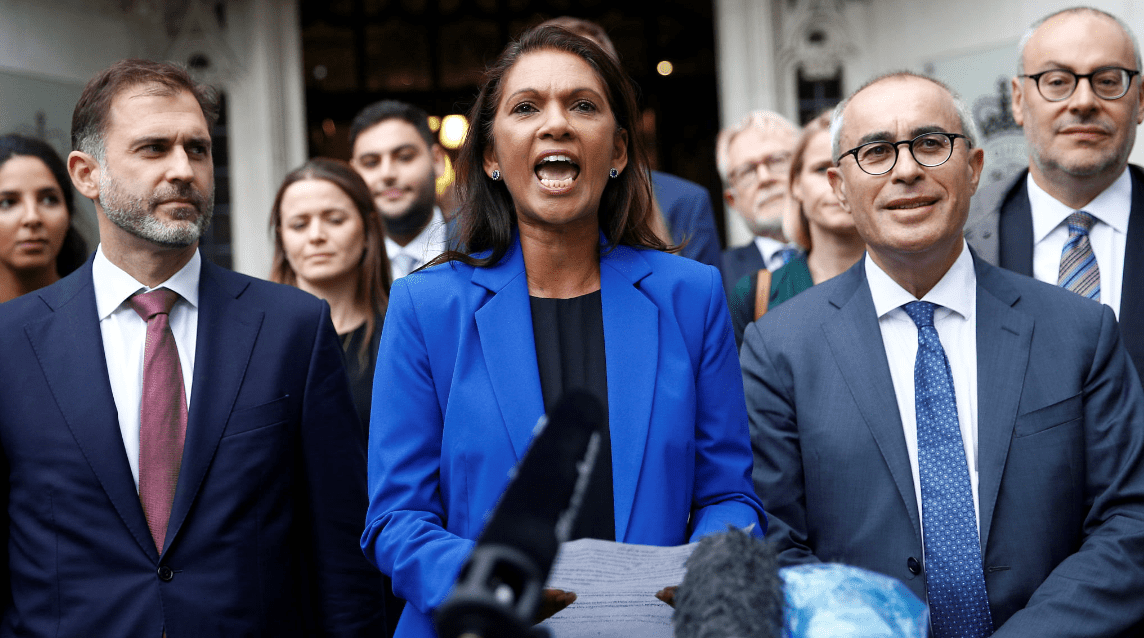

Judges Are Having Their Wings Clipped and Progressive Activists Only Have Themselves to Blame
It was with some bemusement and not a little wry humour that I read in yesterday’s Guardian of the outraged reaction among a certain class of ‘progressive’ legal activist to a leaked Ministry of Justice document which is purported to suggest that the Government is seeking to further limit the scope of judicial review, after having already legislated to do so (making it slightly harder for tribunal decisions in immigration cases to be appealed) earlier this year.
Judicial review, for the uninitiated, is in a nutshell what happens when a court ‘reviews’ the decision of a public body (such as the Government), traditionally to ensure that said decision was made through a lawful process, and more recently to ensure it was consonant with human rights law. It is a significant element of what is called ‘administrative law’ – you can think of this as being the branch of law which keeps public bodies honest – but it has always been an important constitutional principle that judicial review should be kept within fairly tight bounds. It is not to be used to challenge the substance of a public body’s decision; rather, it is only supposed to challenge a decision on the basis of it having followed an unlawful procedure (because, for instance, it was biased, or because the person making the decision did not actually have the power to make it). The Human Rights Act 1998 muddies the water here a little by giving courts the power to declare decision as being incompatible with human rights law, but what I have described is the basis of the traditional scope of the practice.
No sensible person would suggest that courts ought not to have a role in restraining the executive in this way, or in preventing serious breaches of fundamental rights, and for a long time a modus vivendi prevailed in which Government and the judiciary engaged in a careful dance in which each respected the other’s institutional role. The problem is when judicial review began to be used tactically in order to frustrate the democratic process. This happened most famously, of course, in the ‘prorogation’ case of R (Miller) v The Prime Minister in 2019. But the truth is that ‘Miller 2’, as it has come to be known, was really just at the end of a long line of judicial review cases in which the likes of Jolyon Maugham, Leigh Day, Liberty, Gina Miller and the Guardian itself used judicial review to further essentially political ends – from embarrassing the royal family to undermining Government social policy to the earlier attempt at stymying Brexit.
The capacity for human beings to fail to think through the long-term consequences of their actions is of course frequently observed; it never ceases to amaze me just how bad legal campaigners in particular are in this regard. What is so surprising, or outrageous, in the discovery that politicising the judicial process turns out in the end to have political consequences? The result of deploying judicial review as a weapon of political struggle, as has happened in recent decades, was always going to be that the courts would end up having their wings clipped. Even at the time the judgment in ‘Miller 2’ was handed down, while the media and political establishment were swooning over Brenda Hale’s spider brooch, wiser heads were warning that if the courts were going to stand in the way of a Government with a democratic mandate there would only be one winner. And so it has now proved: the Tory party is now clearly of the view that the judiciary needs to be put back in its box, so to speak, and the legal activists only have themselves to blame.
This is a deeply regrettable turn of events for two reasons. The first is that it has led judges, seeing the way the wind is now blowing, to ‘overcorrect’ and become almost obsequious in their deference to government and Parliament in recent cases. There is no doubt, for example, that fear of confrontation with government and concerns about the political backlash to Miller 2 contributed to the courts’ almost supine approach to the biggest interference with civil liberties in the nation’s history in 2020. The second is if anything more serious: it will undoubtedly result in the further politicisation of the judiciary. If the perception grows that there is a rift between the Conservative Party and the courts, judges’ decision-making will only be further warped by concerns about the political consequences of their judgments. This will mean either bending over backwards to avoid conflict, or growing more confrontational rather than less. The ultimate long-term consequence of that, one fears, will be American-style political appointment of judges, with politicians determining that if courts are going to be used as a political weapon, they should at least ensure that it is allied judges who have their fingers on the trigger. One only needs to cast a glace across the pond to see where that road leads, and it isn’t anywhere good.
Dr. David McGrogan is an Associate Professor at Northumbria Law School.







